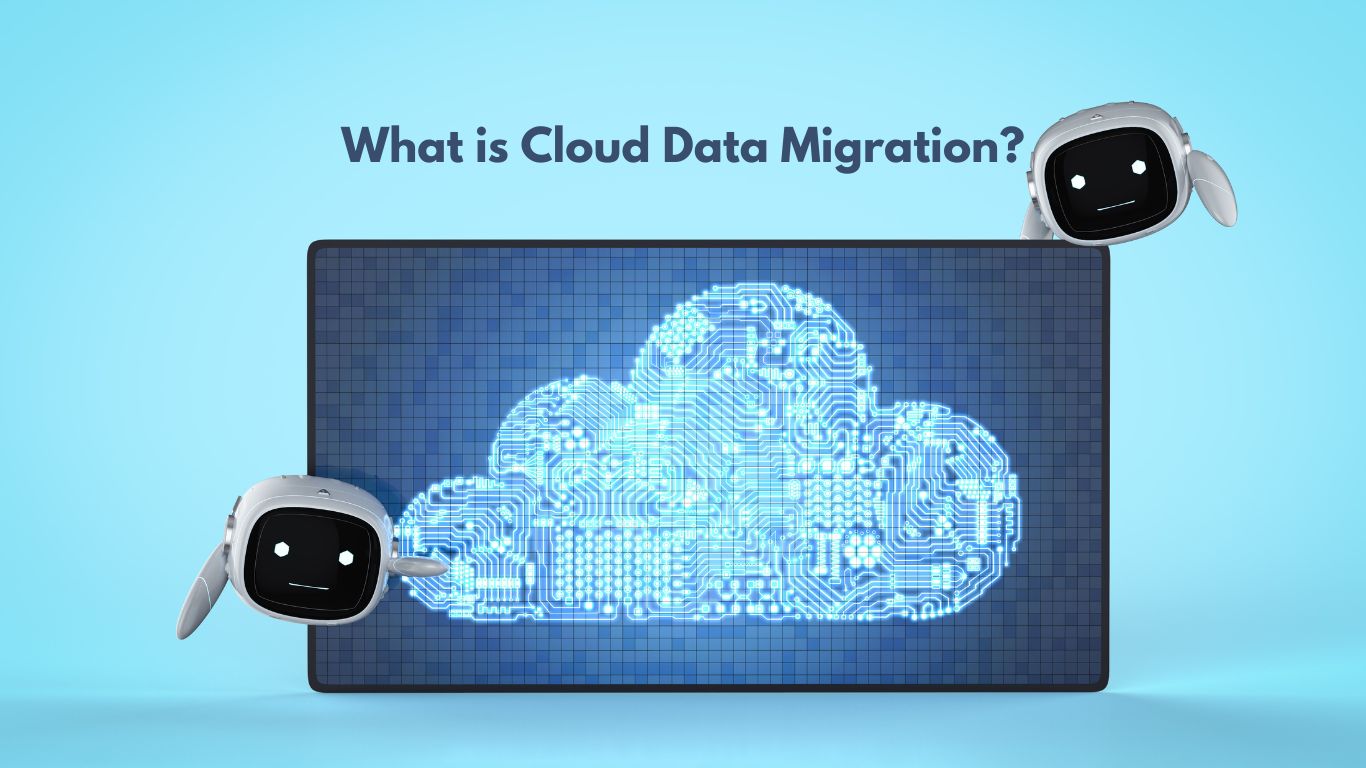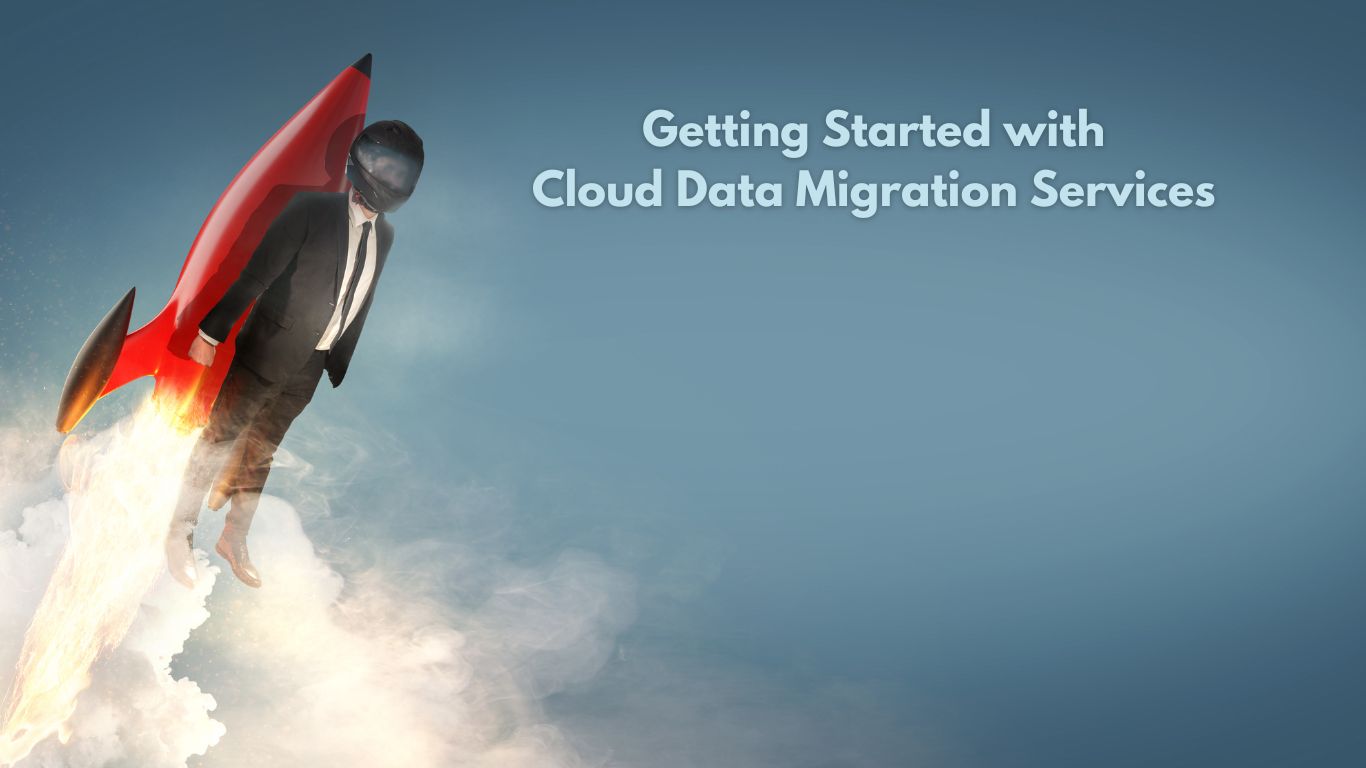Harnessing Competitive Advantage through Cloud Data Migration: A Comprehensive Guide
In today’s dynamic business landscape, securing and sustaining a competitive edge is not just a choice—it’s a strategic imperative. Cloud data migration emerges as a powerful catalyst for transformation and success in the arsenal of modern strategies available. In this expansive guide, we will embark on a journey deep into the world of cloud data migration for businesses. We’ll explore its nuances, reveal its potential to redefine your business strategy and illuminate how it can amplify efficiency, innovation, and overall performance.
Introduction: A Paradigm Shift in Business
Modern businesses operate in an environment characterized by relentless change and innovation. To thrive, companies must continually adapt and innovate. One such innovation that has revolutionized the business landscape is cloud data migration. This article will serve as your beacon to navigate the intricate world of this transformative process, elucidating how it can revolutionize your business strategy, bolster efficiency, and propel your organization to unprecedented heights.
What is Cloud Data Migration?

Cloud data migration isn’t merely a buzzword; it’s a seismic shift in how businesses manage their data, applications, and operations. At its core, it involves transferring data and workflows from on-premises storage systems to cloud-based infrastructure. Imagine it as relocating your business to a state-of-the-art, globally accessible headquarters in the digital realm. Yet, the fundamental question persists: Why is this transition so pivotal, and how can it benefit your organization?
The Significance of Cloud Data Migration
We’ll now expose the major significance of cloud data migration by peeling back the layers:

- Cost Efficiency: Revolutionizing Business Economics
Running and maintaining on-premises servers can impose a substantial financial burden. Expenses related to hardware procurement, maintenance, and energy consumption accumulate swiftly. However, by embracing cloud technology, you can eliminate these overheads. Cloud services operate on a pay-as-you-go model, ensuring that you pay only for the resources you utilize. This newfound cost efficiency can free up valuable resources for strategic investments, innovation, and growth.
- Scalability: Embracing Limitless Potential
Imagine having the power to dynamically expand your infrastructure during periods of high demand and seamlessly scale it down during quieter times. Cloud services offer precisely this capability. Such scalability ensures that your resources are optimally utilized and equips your business with the agility to respond swiftly to evolving market dynamics.
Advantages of Cloud Data Migration: Elevating Business Operations
After establishing its significance, let’s examine a some specific advantages of cloud data migration:

- Data Accessibility: Beyond Geographical Boundaries
In today’s interconnected world, work transcends geographical boundaries. Cloud data is accessible from anywhere with an internet connection, empowering your team to work seamlessly, regardless of location. This accessibility fosters collaboration and ultimately enhances productivity—a critical factor in gaining a competitive edge.
- Enhanced Security: Safeguarding Digital Assets
In the digital age, security is paramount. Reputable cloud service providers invest heavily in cutting-edge security measures. They employ robust encryption, firewalls, and stringent security protocols to safeguard your data. Your data is often safer in the cloud than on local servers, effectively mitigating security concerns.
Challenges and Solutions in Navigating the Path of Cloud Data Migration
While the advantages are compelling, cloud data migration presents its unique set of challenges:

- Data Security Concerns: Balancing Risk and Reward
Entrusting your data to a third-party provider can raise valid security concerns. However, this challenge can be mitigated by selecting a reputable cloud service provider with a proven track record in security. Additionally, implementing robust security measures on your end further fortifies your data’s protection—a prudent approach in balancing risk and reward.
- Downtime During Migration: Minimizing Disruptions
Migrating substantial volumes of data can result in downtime, impacting operations. To address this challenge, meticulous planning and execution are paramount. Strategies such as migrating during off-peak hours, employing redundancy, and implementing failover mechanisms can minimize disruptions and ensure business continuity.
Getting Started with Cloud Data Migration Services
Now, let’s take the first steps on your cloud data migration journey:

- Evaluating Business Objectives
To embark on a successful cloud data migration journey, begin by defining your business objectives. What are you seeking to achieve through migration? Enhanced efficiency? Cost savings? Improved scalability? Clear objectives will guide your migration strategy.
- Assessing Current Infrastructure
Understand your existing infrastructure comprehensively. Assess your data, applications, and systems. This assessment will help determine what needs to be migrated, what can be optimized, and what can be retired.
- Selecting the Right Cloud Data Migration Service Provider
Choosing the right cloud service provider is pivotal. It’s imperative to evaluate your specific requirements and select a provider that aligns seamlessly with your strategic goals.
- Crafting a Comprehensive Migration Plan
A well-crafted migration plan is the cornerstone of success. This strategy encompasses setting clear objectives, creating a timeline, defining roles and responsibilities, and identifying potential risks. It should be comprehensive, leaving no room for ambiguity.
- Executing the Migration: Precision and Coordination
Execution is where the meticulously devised plan comes to life. Migrating data, applications, and workflows requires careful coordination, seamless execution, and constant monitoring to ensure a smooth transition.
- Data Security and Compliance: Upholding Integrity
In today’s regulatory landscape, data security and compliance are non-negotiable. Your cloud migration strategy should encompass robust security measures and compliance checks to protect sensitive data and uphold legal requirements.
- Monitoring and Optimization: The Journey Continues
Once the migration is complete, your journey continues. Continuous monitoring and optimization are essential to ensure your cloud infrastructure remains efficient, secure, and cost-effective.
How Cloud Data Migration Consulting Companies Can Help Businesses

Cloud migration consulting companies are pivotal in helping businesses navigate the complex process of transitioning their operations to the cloud. Here’s how these consulting firms can provide invaluable assistance:
1. Expertise and Experience:
Cloud migration consultants possess a deep understanding of cloud technologies and extensive experience in handling migration projects. They are well-versed in various cloud platforms, best practices, and industry trends, ensuring businesses benefit from their specialized knowledge.
2. Tailored Strategy Development:
Consultants work closely with businesses to develop a customized cloud migration strategy aligned with specific objectives and requirements. This strategy encompasses choosing the right cloud service provider, assessing the current infrastructure, and creating a roadmap for migration.
3. Cost Efficiency:
One of the primary benefits of engaging with cloud migration consultants is their ability to optimize costs. They help businesses select the most cost-effective cloud solutions, optimize resource allocation, and avoid unnecessary expenses, maximizing ROI.
4. Security and Compliance:
Data security and compliance are paramount. Consultants ensure that the migration process adheres to industry standards and regulatory requirements. They implement robust security measures, encryption protocols, and compliance checks to safeguard sensitive data.
5. Risk Mitigation:
Cloud consultants proactively identify and mitigate potential risks and challenges associated with migration. Their experience allows them to foresee issues and develop contingency plans, reducing the likelihood of disruptions during the migration process.
6. Seamless Transition:
Consultants meticulously plan and execute the migration, minimizing downtime and ensuring a smooth transition. They precisely handle data transfer, application migration, and workflow integration, reducing business interruptions.
7. Post-Migration Support:
The journey doesn’t end with migration completion. Cloud consultants offer ongoing support, monitoring, and optimization services. They keep a vigilant eye on the cloud infrastructure, making necessary adjustments to maintain efficiency and security.
8. Scalability and Flexibility:
Consultants help businesses take full advantage of cloud scalability. They design solutions that allow for dynamic resource allocation, ensuring businesses can effortlessly scale their operations up or down based on demand.
9. Strategic Alignment:
Cloud migration consultants ensure that the migration strategy aligns with the broader business goals and objectives. This alignment ensures that cloud technology serves as an enabler for achieving strategic milestones.
10. Training and Skill Development:
Many cloud consultancy firms offer training and skill development programs for the client’s internal teams. This helps in ensuring that the organization can manage and optimize the cloud infrastructure effectively in the long term.
11. Performance Optimization:
Cloud consultants continuously monitor the performance of cloud resources and applications. They identify bottlenecks, optimize configurations, and make recommendations for improvements to maintain peak performance.
12. Cost Monitoring and Optimization:
Cloud consultants help businesses keep a close watch on cloud expenses, enabling them to continually identify cost-saving opportunities and optimize resource utilization.
Conclusion: Your Path to Success
In summary, cloud data migration is a strategic necessity for businesses in the digital era. When effectively leveraged, its advantages can elevate your business above the competition. Moreover, partnering with cloud migration consultancy providers is akin to securing a successful ally. They navigate complexities, mitigate risks, optimize costs, ensure security, and provide ongoing support, all contributing to your business’s flourishing future in the digital landscape. Embrace this transformative journey with confidence, as success is not a distant goal but a strategic choice available today.

